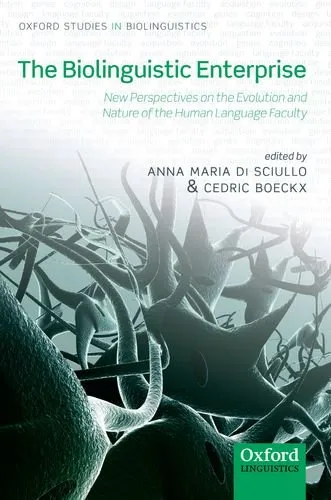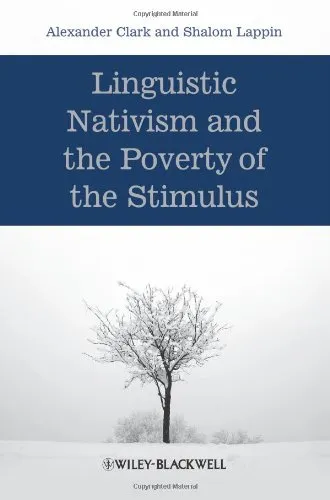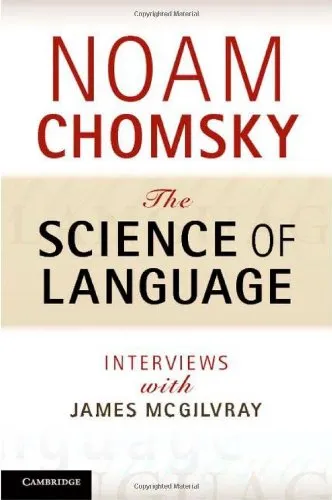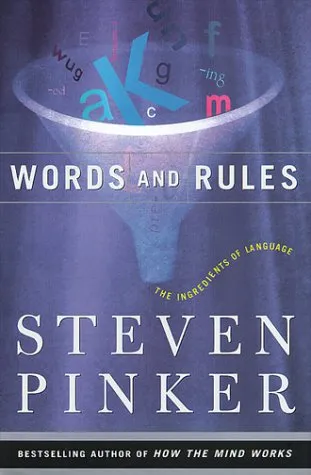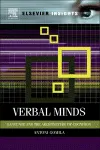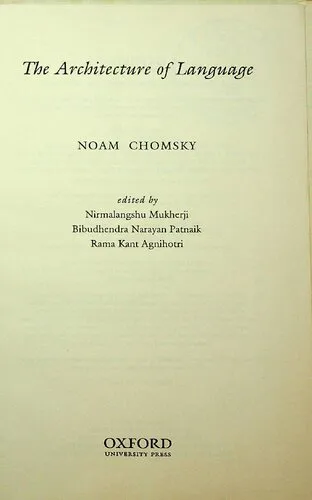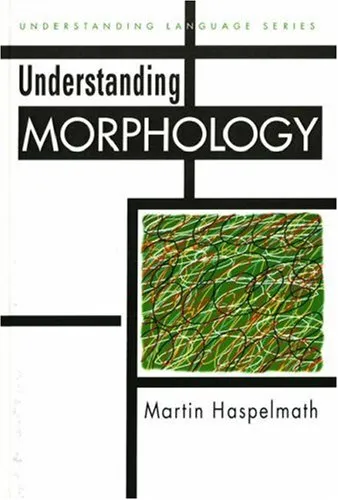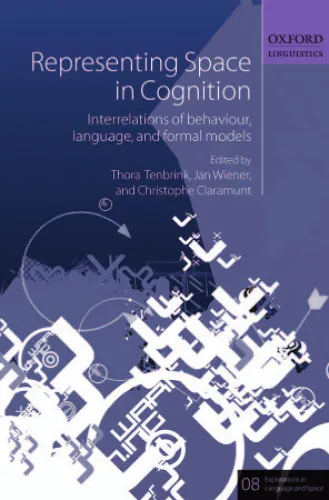The Biolinguistic Enterprise: New Perspectives on the Evolution and Nature of the Human Language Faculty
4.0
Reviews from our users

You Can Ask your questions from this book's AI after Login
Each download or ask from book AI costs 2 points. To earn more free points, please visit the Points Guide Page and complete some valuable actions.Related Refrences:
Introduction
The origin, evolution, and nature of human language remain some of the most profound and enigmatic questions in cognitive science, linguistics, and biology. The Biolinguistic Enterprise: New Perspectives on the Evolution and Nature of the Human Language Faculty, edited by Anna Maria Di Sciullo and Cedric Boeckx, embarks on a groundbreaking journey to explore these questions. This book serves as a multidisciplinary endeavor that integrates insights from multiple fields, such as linguistics, evolutionary biology, neuroscience, psychology, and computational sciences, to present innovative perspectives on language as a uniquely human faculty and its evolution.
Framed within the paradigm of biolinguistics—a research agenda that seeks to understand the biological basis and evolutionary origins of language—this book is a collection of essays written by some of the most prominent thinkers in the field. With contributions that range from theoretical linguistics and generative grammar to comparative biology and cognitive neuroscience, it provides an in-depth exploration of the intersection between language and biology. It also addresses fundamental questions regarding the universality of grammar, the modularity of the mind, and the genetic underpinnings of our capacity for language. This introduction provides an overview of the book's main themes and why it is an essential read for anyone interested in the science of language.
Detailed Summary of the Book
The central premise of this book is that language is not merely a social tool for communication but a cognitive ability deeply rooted in our biology. The volume is divided into several thematic areas, each delving into a critical aspect of biolinguistics:
Evolutionary Origins: Several chapters explore how the human language faculty may have evolved. Drawing parallels between human communication and that of other species, the authors investigate whether the capacity for language emerged suddenly as a result of a single mutation or gradually through a process of natural selection.
Theoretical Insights: Grounded primarily in Noam Chomsky's work on generative grammar, the book builds on the idea of an innate universal grammar shared by all humans. The essays evaluate how the minimalist program in linguistics sheds light on the simplicity and efficiency of syntactic structures.
Comparative Biology: Another dimension of the book is a comparative analysis of human language with animal communication systems, providing fascinating insights into what makes human language distinct and diving deep into the neural and genetic differences between humans and other species.
Interdisciplinary Perspectives: The book emphasizes the necessity of cooperation between disciplines such as biology, linguistics, and computational theory to answer long-standing questions about language's origins and nature.
Each chapter is richly informed by empirical evidence, theoretical rigor, and a commitment to addressing grand scientific challenges. This approach provides a panoramic view of biolinguistic studies while also guiding future research directions.
Key Takeaways
- Language is both a biological and cognitive phenomenon unique to humans.
- The minimalist program offers a promising perspective to understand the simplicity and effectiveness of syntactic structures.
- Comparative studies of animal communication systems are essential to isolate what truly makes human language distinct.
- The evolution of language likely involved a combination of genetic predispositions and cognitive advancements.
- Collaboration between linguists, neuroscientists, biologists, and psychologists is imperative for progress in this field.
Famous Quotes from the Book
“The capacity for language has deep biological roots that are uniquely human, but its manifestation is influenced by cultural, environmental, and social dynamics.”
“Biolinguistics is not just a framework for understanding what language is, but a window into what it means to be human.”
Why This Book Matters
The field of biolinguistics occupies a special place at the intersection of linguistics and the life sciences, and this book is a landmark contribution to the field. It is a treasure trove of ideas for linguists, biologists, neuroscientists, psychologists, and anyone curious about human nature. By emphasizing interdisciplinary collaboration and grounding its theoretical discussions in biological principles, the book challenges traditional assumptions about the human mind and communication.
Moreover, the book doesn't shy away from addressing contentious debates, such as the role of genetic determinism in language acquisition or the modularity of the human mind. Instead, it encourages the reader to critically evaluate established viewpoints while also providing new directions for research.
In a broader sense, this book matters because it tackles one of the fundamental mysteries of humanity—how we evolved the capacity to use language. Exploring this topic offers not only intellectual fulfillment but also practical implications for fields such as artificial intelligence, cognitive enhancement, and the treatment of neurological conditions affecting language.
If you are fascinated by the intertwining of biology, cognition, and linguistics, The Biolinguistic Enterprise stands as a vital resource that will deepen your understanding of humanity’s most defining faculty: language.
Free Direct Download
You Can Download this book after Login
Accessing books through legal platforms and public libraries not only supports the rights of authors and publishers but also contributes to the sustainability of reading culture. Before downloading, please take a moment to consider these options.
Find this book on other platforms:
WorldCat helps you find books in libraries worldwide.
See ratings, reviews, and discussions on Goodreads.
Find and buy rare or used books on AbeBooks.
1463
بازدید4.0
امتیاز0
نظر98%
رضایتReviews:
4.0
Based on 0 users review
Questions & Answers
Ask questions about this book or help others by answering
No questions yet. Be the first to ask!
